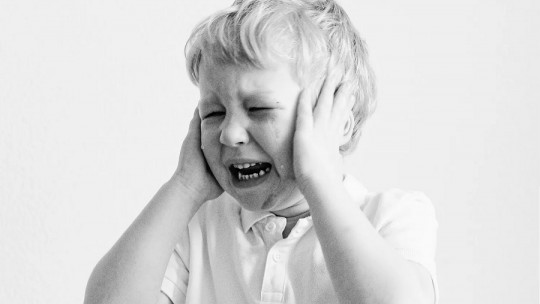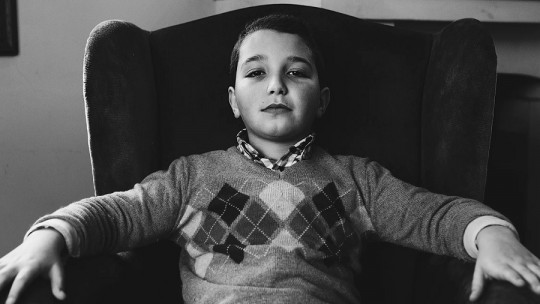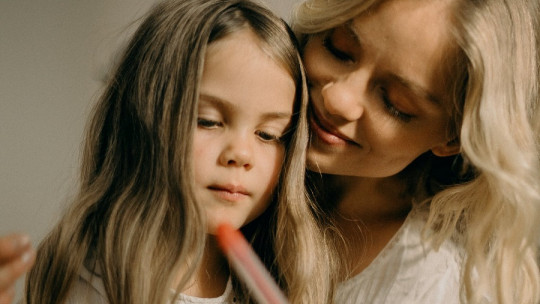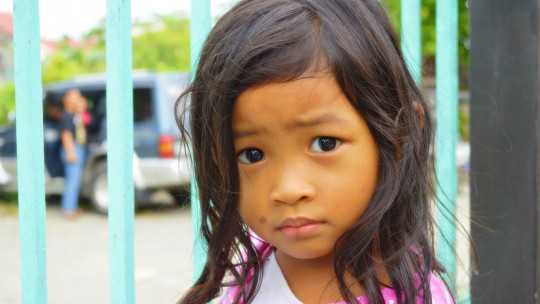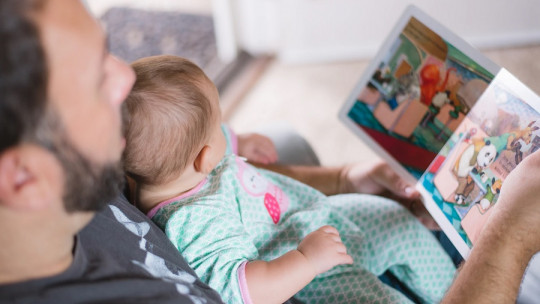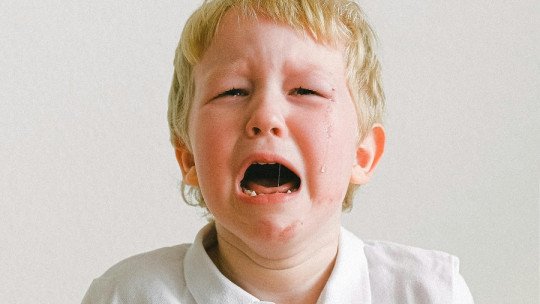
Nowadays, physical punishments in parenting, such as spanking or spanking, are common practices in many homes around the world. These actions are usually carried out with the intention of correcting the child’s behavior, but can have significant adverse effects on her emotional, cognitive, and social development. Despite advances in the understanding of parenting and child development, some parents still resort to these methods as a form of discipline.
One factor that contributes to its persistence is the mistaken belief that they are effective in correcting unwanted behavior and teaching lessons. Scientific research has consistently shown the opposite. Longitudinal studies have found significant associations between the use of physical punishment and a range of negative outcomes for children, including mental health problems, difficulties in social relationships, and lower academic performance.
It is important to recognize that physical punishment is not an effective or healthy form of discipline. In addition to the negative impacts on child development, they can also perpetuate a cycle of violence in parenting and family relationships.
Therefore, it is essential to promote more positive and respect-based alternatives in parenting, which promote a safe and loving environment for the growth and development of children.
In this article, we start from the knowledge and scientific evidence about Physical punishment as a maladaptive strategy to regulate child behavior and that, in addition, has a negative impact on its development. We will differentiate some of the most prevalent negative effects and propose alternative solutions to childhood disruption.
Negative effects of physical punishment on child development
In this first part, we will dive into the main negative effects that physical punishment can have on child development. It is important to know, from the beginning, the negative and even destructive potential that this type of punishment can have for childhood and its healthy and optimal development.
1. Mental health problems
Physical punishment in parenting has been associated with an increased risk of mental health problems in children. Studies have shown that Children who experience physical punishment are more likely to develop anxiety, depression, and conduct disorders compared to those who are not exposed to such practices.
Chronic stress and lack of emotional support can contribute to these problems, negatively affecting children’s psychological and emotional well-being in the long term. Additionally, exposure to violence in the home may increase the risk that children will perpetuate this cycle of violence in their own interpersonal relationships in the future.
2. Difficulties in social relationships
Physical punishments in parenting can cause difficulties in children’s social relationships. Children who are subjected to physical punishment may experience problems establishing healthy bonds with their peers and authority figures. This can manifest itself in behaviors such as aggression toward other children or excessive submission.
Besides, Children may have difficulty trusting adults and expressing their emotions appropriately. These difficulties may persist into adulthood, affecting the individual’s ability to establish satisfactory interpersonal relationships and function effectively in social settings. Therefore, physical punishment can have a significant impact on the development of children’s social and emotional skills.
3. Poor academic performance
Physical punishment in parenting has also been linked to poor academic performance in children. Exposure to this type of discipline can distract children from their learning, causing stress and anxiety that make it difficult to concentrate on schoolwork.
Additionally, children who experience physical punishment may develop a negative attitude toward school and learning, which may affect their motivation and academic performance.
Studies have found that children subjected to physical punishment tend to have lower grades and poorer attendance rates compared to those who are not disciplined in this way. Therefore, physical punishment can have significant consequences on children’s academic success.
4. Increased aggression
Physical punishment in parenting has been associated with an increase in childhood aggression. When children are disciplined through physical punishment, they may internalize the idea that violence is an acceptable way to resolve conflict or control the behavior of others. This may lead them to replicate this aggressive behavior towards their peers or other individuals in future situations.
On the other hand, physical punishment can generate feelings of resentment, anger or helplessness in children, which can manifest in aggressive behavior in response. As a result, children who experience physical punishment are at increased risk of exhibiting aggressive behaviors, which can perpetuate a cycle of violence in their social and family environments.
5. Impact on brain development
Physical punishment in parenting can have a negative impact on children’s brain development. Exposure to physical violence can affect key areas of the brain related to emotional processing, behavioral regulation and impulse control.
Neuroscientific studies have shown that chronic stress associated with physical punishment can alter the structure and function of the developing brain, especially during sensitive periods of growth and neuronal plasticity. This can result in difficulties regulating emotions, making rational decisions, and maintaining healthy interpersonal relationships throughout life. Therefore, physical punishment can have lasting consequences on children’s cognitive and emotional development.
6. Intergenerational cycle of violence
Physical punishment in parenting can contribute to the intergenerational cycle of violence. Children who are subjected to physical punishment are more likely to replicate this behavior as adults in their own relationships and parenting practices. By witnessing and experiencing violence in the home, Children internalize the idea that it is an acceptable way to resolve conflicts and control the behavior of others.
As a result, they perpetuate this cycle by resorting to similar methods of discipline with their own children in the future. This pattern of violence can continue from generation to generation unless it is interrupted by adopting healthier, respect-based approaches to parenting.
Alternatives to physical punishment in parenting
Once we have understood that physical punishment has a direct and mainly negative influence on the health and child development of punished children, it is important to know adaptive and alternative strategies to physical coercion. It is important to promote conflict resolution skills that are based primarily on effective communication, clear boundaries, and establishing safe spaces and environments.
1. Effective communication
Effective communication in parenting involves actively listening to children, validating their feelings and concerns, and expressing your own clearly and understandingly. This fosters an environment of openness and trust where children feel safe to share their emotions and thoughts. In addition, it promotes constructive problem solving and strengthens the emotional connection between parents and children, creating a solid foundation for healthy relationships.
2. Positive reinforcement
Positive reinforcement in parenting involves recognizing and rewarding children’s desirable behaviors. Through praise, tangible rewards or privileges, positive behaviors are reinforced, encouraging their repetition. This approach helps build self-esteem and intrinsic motivation in children by promoting a supportive and encouraging environment at home. In addition, it strengthens the relationship between parents and children, based on mutual appreciation and recognition.
3. Establishing clear boundaries
Setting clear limits in parenting involves defining expectations and rules in a way that is consistent and understandable to children. This provides structure and security, helping them understand what is expected of them and what the consequences of their actions are. Limits should be realistic, appropriate for the child’s age and explained in an understandable way, which makes it easy to comply and promotes a harmonious and safe family environment.
4. Modeling positive behaviors
Modeling positive parenting behaviors involves being a role model for children. Parents display problem-solving skills, empathy, and self-control in their everyday interactions. By demonstrating positive behaviors, Children learn how to face challenges, manage emotions, and relate to others constructively. This approach helps establish a family environment based on mutual respect and promotes the development of healthy social and emotional skills.
Conclusions
In conclusion, physical punishment in parenting can have significant adverse effects on child development, including mental health problems, difficulties in social relationships, poor academic performance, and increased aggression. These impacts may be exacerbated by the intergenerational cycle of violence. However, there are more effective and healthier alternatives, such as effective communication, positive reinforcement, setting clear limits, and modeling positive behaviors. By adopting these approaches, parents can create a safe and loving family environment that promotes healthy child development and positive family relationships.

